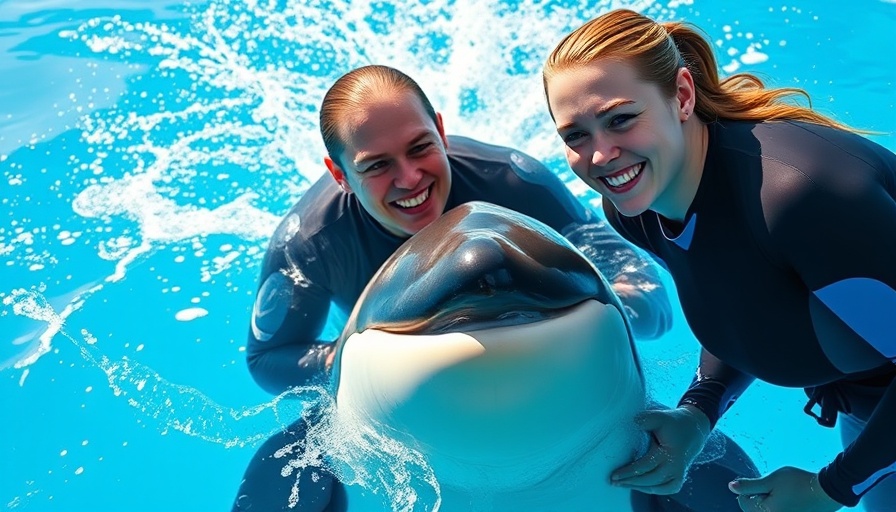
OSHA's Critical Findings on SeaWorld's Safety Measures
SeaWorld Orlando has been thrust into the spotlight following an incident involving a trainer and a killer whale that occurred in September 2024. The U.S. Department of Labor's Occupational Safety and Health Administration (OSHA) conducted a detailed investigation after the trainer sustained injuries during a routine training exercise. The agency highlighted severe shortcomings in the park's safety protocols, citing that the trainer "was not properly protected from hazards" while working close to the whale. OSHA's findings reveal a persistent concern about workplace safety at the park, which has faced scrutiny for years due to the inherent risks faced by marine mammal trainers.
The Gravity of the Incident: Safety Violations at SeaWorld
In its report, OSHA issued a "general duty clause serious citation" against SeaWorld. This citation stemmed from the exposure of trainers to potential risks during interactions with the animals, including the dangers of bites, being struck, and drowning. A proposed fine of $16,550 was put forward, reflecting the seriousness of the situation. SeaWorld has 15 business days from receiving this citation to either comply, request an informal conference, or contest the findings through official channels. The ongoing debate surrounding animal treatment and trainer safety at SeaWorld continues to unfold.
The History of Safety Concerns at SeaWorld
Safety at SeaWorld has been a contentious issue for many years. Various incidents have led to public outcry and regulatory scrutiny, particularly concerning the treatment of orcas in captivity. In response to tragic events where trainers lost their lives, OSHA previously recommended restrictions on swimming with the whales during performances. This recommendation underscored the inherent dangers associated with close interactions between humans and these powerful marine creatures.
Public Perception and Animal Rights Advocacy
Animal rights advocates have long criticized SeaWorld, arguing that the very concept of using orcas for entertainment is fundamentally flawed and poses risks for both the animals and their trainers. Organizations such as PETA have campaigned against the captivity of large marine mammals, labeling such practices as unethical. The injuries sustained by the trainer serve as a stark reminder of the potential hazards within this controversial entertainment model, raising questions about the welfare of both trainers and the animals.
The Future of Marine Mammal Training
As the world continues to grapple with environmental concerns and ethical standards regarding wildlife, the future of marine mammal training is uncertain. With increasing advocacy for stricter regulations, SeaWorld and similar parks may need to rethink their operational practices and training methodologies. The incident at SeaWorld Orlando could prompt a reevaluation of how trainers interact with orcas, fostering discussions around more humane and safer practices for all involved.
Potential Changes and Recommendations for Safety
To safeguard both trainers and the animals, it may be prudent for SeaWorld to implement additional safety measures. This could include enhanced safety training for staff, technology to monitor animal behavior, and stricter regulations on hands-on interactions. Research indicates that a culture of safety within theme parks can dramatically decrease workplace incidents. Developing comprehensive procedures which prioritize human and animal welfare could benefit SeaWorld's reputation while protecting their employees.
If SeaWorld acts decisively on these recommendations, it might not only improve its safety profile but also begin to shift public perception towards a more favorable view, where safety and ethical treatment of animals are prioritized.
 Add Row
Add Row  Add
Add 




 Add Row
Add Row  Add
Add 








Write A Comment